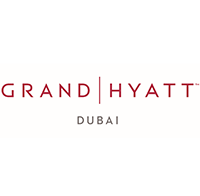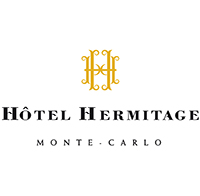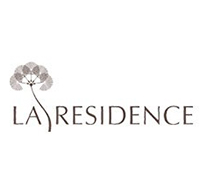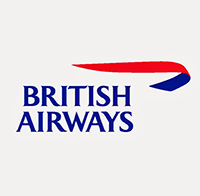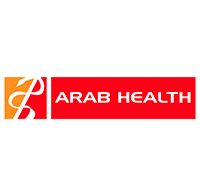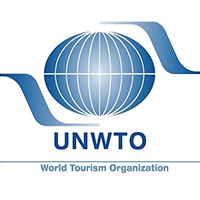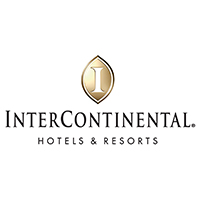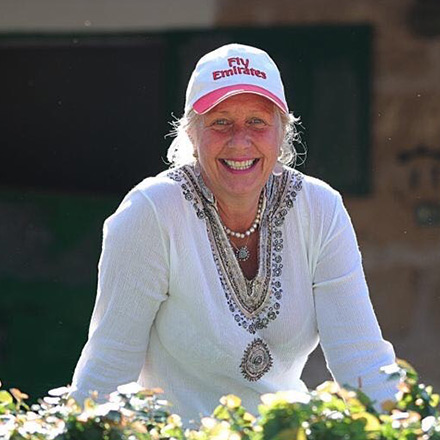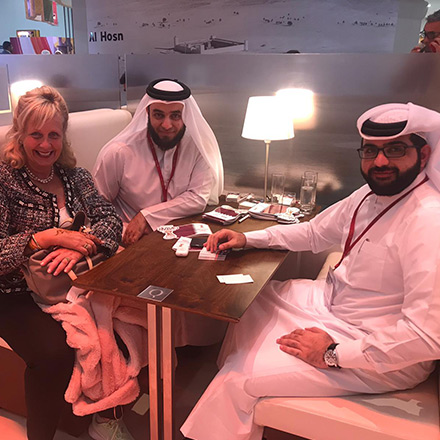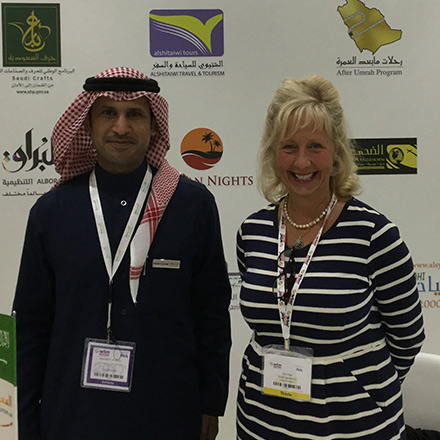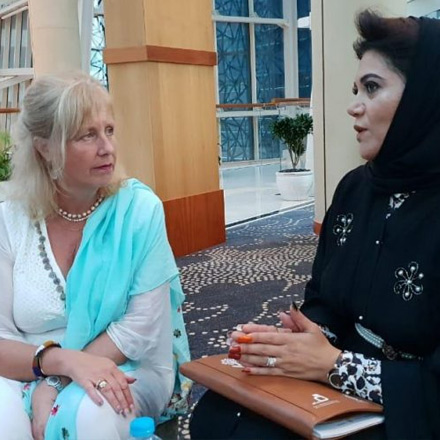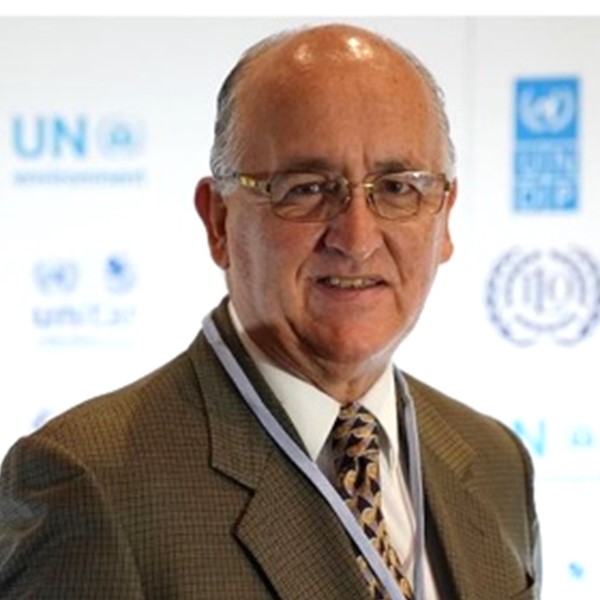Good for Climate Biodiversity and People
TLC Harmony in Tourism and Development
Simply Good for People Planet and Prosperity
Taleb Rifai, Former Secretary General UNWTO
Maldives’ economic dependence on tourism makes it absolutely essential we continue to focus on sustainable tourism development, whilst we embark on nationwide tourism expansion initiatives and celebration of our tourism industry’s Golden Jubilee in 2022.
We endorse the TLCs sustainable tourism initiative to Reset Tourism Sustainably
(Dr. Abdulla Mausoom, Minister of Tourism, Maldives)
We want to set out a vision of a sustainable, outcome focused, approach for tourism and the construction of tourist resorts and destinations that has a net positive impact for biodiversity, prosperity and climate.
We have a requirement to RESET our industry and approach
That identifies a destination and/ or its services as being Good for People, Planet and Prosperity
That has sustainability and wellness factored into the design and build of resorts and destinations from the very
start
With an emphasis on sustainability, guided by being aware of the Total Life Cycle of our impacts on Environment and in Harmony with Nature.
That creates an ambition for business and consumers that is “Beyond CO2 Neutral” and considers the full impact of industry on biodiversity, habitat, water, land, sea, people, and places
That lets consumers and travelers know that their holiday is benefiting themselves, the destination, and the planet
That enhances the capital funds available towards activities that Preserve, Protect and Restore the natural environment, locally and globally
Good for Climate, Biodiversity and Place
1. What is TLC Harmony and GABI?
TLC is an acronym for Total Life Cycle (but you can call us Tender Loving Care if you like). The Harmony part of the name comes from our origins, based on work conducted with the Harmony Institute, Trinity St David, University of Wales, to implement Harmony Principles into a data-based business model approach to sustainability and environmental issues.
GABI, is another acronym - Greenhouse Gas and Biodiversity Impact. a software-based tool to measure across Climate warming gases and Biodiversity, that delivers analytics and calculates a price of those impacts to society and the planet, based on UK, EU and International databases.
Why Tourism
Tourism provides 10% of World GDP (UNEP) And 8% of Climate Gasses (Nature)
“Tourism has been described as the world’s largest transfer of resources from rich to poor, dwarfing international aid,” BBC
“the largest voluntary transfer of cash from the rich to the poor, the ‘haves’ to ‘have nots’, in history”. Even if one allows for considerable “leakage” Guardian newspaper
UNWTO
“Some 7% of world tourism relates to wildlife, a segment growing by 3% annually. The impact on biodiversity and ecosystems is critical. In many African destinations, wildlife accounts for up to 80% of visits, and tourism revenues enable marine conservation efforts.
Several examples of community involvement in nature tourism show how communities, including indigenous peoples, have been able to protect their cultural and natural heritage while creating wealth and improve their wellbeing.
2. What is in it for the Business?
• MARKETING/ BRANDING - An authentic, verifiable and simply to understand message, that the business is a Good for: People, Biodiversity and Climate.
• INCREASE REVENUE and PROFIT – Authentically sustainable business can charge more
• ATTRACT and RETAIN STAFF and CUSTOMERS – Business that are sustainable draw and keep quality staff, and customers
• MEASURE – We provide a science-based measure of Harm Impacts across Climate and Biodiversity
• MITIGATE – We advise on harm reduction and resilience approaches, and fund initiatives that reduce greenhouse gases and enhance biodiversity. Our GABI (Greenhouse Gas and Biodiversity Impact) tool identifies a true price (Planet Tip) for tourism and travel that allows customers to engage in environmental improvement by pricing the financial cost of our tourism, hospitality and travel experiences - one guest, one hotel room night, one MICE event, one dining experience at a time.
• COMMUNICATE – We believe that the customer should be an integral part of the reduction and mitigation of harm impacts and the most effective way to do that is engage them with effective and transparent communication that lets the guest/ customer know how you are tackling and improving your sustainability approach.
3. What is different about TLC
TLC Harmony differs from other Sustainable Tourism approaches by being focused on:
- High Impact areas such as Scope 3 (supply chain) GHG emissions that comprise at least two thirds of hotel, business and hospitality climate harming emissions
- Embodied carbon, working with construction and builders that emit 38% of GHG emissions compared to tourisms 8% GHG emissions
-Biodiversity issues that are at times far greater in harm impact than GHG emissions
- Outcome and Impact based, seeking to Simply and Accurately Describes to the Consumer and Stakeholders the impact your business has on the natural environment. We can verify whether your business is either:
- Climate Neutral
- Climate Positive
- Planet & Prosperity Aware
- Good for Climate, Biodiversity and Prosperity
The Approach identifies the financial costs of the positive AND negative impacts a destination or organisation has upon the environment, the location, and people.
We are a signatory to endorse science and evidenced based, high-integrity, voluntary carbon markets as supported by the Taskforce for Scaling Voluntary Carbon Markets. And aligned to the Integrity Council for the Voluntary Carbon Market
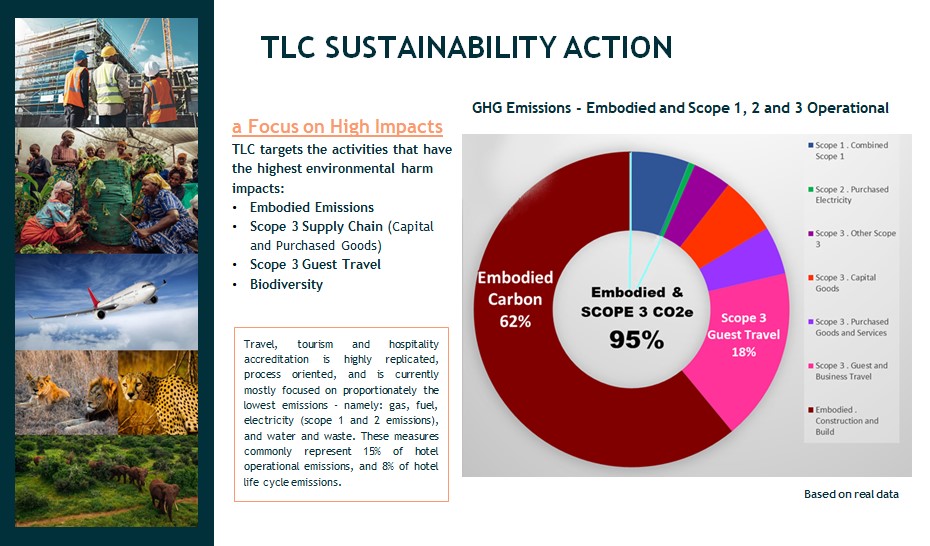
Good for Climate, Biodiversity and Place
4. Supporting Assessment and Audit Frameworks for Human & Social, and Natural Capital
The Harmony Golden Ratio is inspired by Harmony principles as set out in the Prince of Wales' book Harmony: A New Way of Looking at our World, written with Tony Juniper and Ian Skelly. It draws on the UN Sustainability Goals, UN Happiness Reports, and aligns with leading edge developments in costing: environmental harm, social value, and social impact, they include:
- UK Treasury Department -Economics of Biodiversity
- UN System of Environmental-Economic Accounting (SEEA)
- Natural Capital Coalition and Social & Human Capital Coalition
- Doughnut economics - a visual framework for sustainable development
- Tony Juniper, Chair of Natural England
- KPMG – True Value
- PwC - Total Impact Measurement and Management
- Environmental Profit and Loss accounting
- Rebecca Henderson, Real Cost Economics, Harvard
5. Beyond CO2 Neutral!
The Harmony Golden Ratio looks to identify a financial value to the Total Life Cycle Impact that an organization, product, or service has across Human, Social and Natural Capital.
We are setting an aspiration for industry, to go “Beyond CO2 Neutral”.
While Carbon Dioxide emissions leading to climate change is a significant component of harm and must be addressed, there are other, more powerful climate changing gases such as nitrous oxide and methane, being released through human industrial activity, produced by fossil fuel use and extraction, and farming. With additional harm through air pollution, through ozone depleting chemicals, transport and traffic particulates, and industrial activity directly impacts upon human and biological health. Plastics, fertilizers, and waste from our farmed and urban environments ends up in our rivers, lakes, and seas. The accumulated of waste, by-products and intensive farming destroys habitat and biodiversity of both land and sea.
A focus on Carbon, is a first step, but it is a limited understanding of our total global negative impact, and with so much CO2 already released in the atmosphere and harm done to habitats and biodiversity, a focus on Carbon Neutral alone, is too little too late.
6. A Partnership between Academia and Business
The Harmony Golden Ratio is the work of academics and industry advisers working at the University of Wales Trinity Saint David (UWTSD) to develop a unique measurement tool developed specifically for travel, tourism and hospitality businesses looking to reduce their harmful environmental impact and to positively embrace a more sustainable way of business for the future.
Developed in line with the established concept of Harmony as a blueprint, The Harmony Golden Ratio is the brain child of Leo Downer who has worked in strategy and delivery, for government and charities, improving heath and community safety; and Nicki Page who have over 30 years experience working in global wellness tourism and hospitality, and Nick Campion of UWTSD.
Following on from The Harmony Debates virtual book launch in October, which gathered panelists from across the business, government and academia who have written on their support for the philosophy of Harmony as a blueprint for a better more sustainable world, there have been calls for urgent change from governments, with businesses and industries around the world adding their voices to the growing chorus globally for a RESET.
The Harmony Golden Ratio was developed by TLC in consultation with professionals in sustainability, global hotel brands, health, community safety, education, transport, and government. It identifies a tourism destination that has an authentic commitment to sustainability and the planet.
The principle of intergenerational equity has deep roots in cultural and religious traditions, including, Islamic, Judeo-Christian, Asian, non-theistic traditions, African customary law, and Native American traditions.
The Well-being of Future Generations, Wales 2015, Act (securing future-justice, for the well-being of current and future generations), is a progressive example where intergenerational principles have been passed into statute.
UNICEF With respect to intergenerational justice, the idea is that present generations have certain duties towards future generations, climate change raises particularly pressing issues, such as which risks those living today are allowed to impose on future generations, and how available natural resources can be used without threatening the sustainable functioning of the planet's ecosystems. Moreover, when one talks about the rights of future generations this inevitably seems to raise the issue of how to balance the rights’ claims of those alive today against the rights’ claims of future generations. climate-change-and-intergenerational-justice
An element of intergenerational equity is that (of resources, habitat, ecosystems) diversity provides flexibility to future generations and provides the capacity to achieve their own goals in the way that they define.
8. Why TLC Harmony
- Sustainability is such an important outcome of Covid , I am , therefore, ready to support TLC , as they strive to support a sustainability position of tourism development in leaping forward to protect our environment, our societies and our economies and thus sustaining life on earth. Taleb Rifai, Former Secretary General UNWTO
- Maldives’ economic dependence on tourism makes it absolutely essential we continue to focus on sustainable tourism development, whilst we embark on nationwide tourism expansion initiatives and celebration of our tourism industry’s Golden Jubilee in 2022.
We endorse the TLCs sustainable tourism initiative, Reset Tourism Sustainably (Minister of Tourism, Maldives)
- TLC Harmony Wins the 2021 UK Enterprise Award.
- “Thank you so much for sharing these inspiring documents” “HRH is very eager to explore .... meaningful collaboration" Jennifer Jordan-Saifi, Household of The Prince of Wales & The Duchess of Cornwall
- “The work you have done to incorporate the Harmony principles is incredible” Patty Clement, Sustainable Markets Initiative, Chief Operating Officer
- “Looking at something through a Harmony lens immediately opens the door to improved performance and greater Harmony. Taking waste management as an example in a resort setting enables guests to understand the effect of consumption, its value, costs and local opportunities including local leadership and education - such as food waste composting use on the resort estate. Other opportunities would likely be directed to reducing pollution such as specific collection and management of plastics. Looking at management systems and working towards positive outcomes locally has a wider and longer-lived effect at the resort and in guests and employee thinking leading to greater customer engagement and community leadership”. Robert Ryan, Director, Ryan Resources Ltd (Sustainability in Infrastructure)
“Absolutely amazing.” Professor Nick Campion, , Harmony Institute, University of Wales, Trinity Saint David
- As a materials expert for over 30 years specialising in admixture building the tallest and longest and airport developments in the world, I applaud the work of TLC and the aspirations for the Golden Ratio to protect people and our planet. Green technology in concrete recipes is continually being upgraded and refined so we in the construction and development phase can align to a world imperative. A Page. Technical Management (Construction), (Alex has joined TLC to support our work on reducing embodied carbon)
“The UK Hospitality Industry must act responsibly and do everything possible to support Government achieve its sustainability targets, I am looking forward to supporting TLC's commitmnet to global hospitality and tourism sustainability at their RESET Tourism event”. Harry Murray MBE, Chairman Lucknam Park Hotel & Spa & President HOSPA, The Hospitality Professionals Association
“We are delighted that Harmony is supporting Go Gloucestershire and the Visit Gloucestershire Partnership’. Tourism is vital to the Gloucestershire local economy, we want to maintain our wonderful offering here in the Cotswolds and surrounding areas. We involve all our partners in the sustainability programmes our organisation has in development, it has never been a more important time for us to unite, collaborate and share best practice.” Steve Gardner-Collins, Visit Gloucestershire Partnership
Covid has made us all think about how we can reorganise our world to make it more equitable and I am so pleased to see this solution for sustainable tourism. I’m delighted to support from within Wales, TLC with their equitable approach to People. Planet. Nature and community, at Reset Tourism Sustainably. Dawn Davies. Consultant and Entrepreneur, Wales.
We are proud to have worked with:
Including Governments and National Ministries across the Gulf, Europe, Asia, and Africa
Founders and Team
Nicki Page
Co-Founder (Tourism Marketing Hospitality)
Nicki is a marketing and public relations titan. Her finely honed experience at blue chip corporates like leading advertising agency Saatchi & Saatchi and Marriott Hotels and Resorts is matched by her integrity and sensitivity to global cultures. Her influence has created a network of the foremost decision makers across Arab, South & South East Asian and African nations and she’s keenly negotiated the success of world-leading tourism and prestige destinations from Jordan to Malaysia, South Africa to the UAE.
Nicki has a deep understanding of promoting worldwide high quality health and wellness resorts; unparalleled insight into the role women have in influencing health, wellness and travel decisions; and an established, trusted business presence in Asia and the Middle East that includes a client list of ruling families, CEOs and top companies.
Leo Downer
Executive Director/ Co-Founder
Leo's experience spans 30 years of developing health and community safety services in government, the voluntary and private sector. He has worked strategically in modelling harm costs and improving outcomes for health improvement, serious crime reduction, wellbeing, and safety nationally and internationally.
From General Practitioner Coordinator with the Maudsley NHS Trust, to Head of Drug and
Crime Reduction in the Government Office for London; developing Social and Harm Impact financial models with the UK Treasury;
to Business Manager for counter-terrorism in the UK Home Office HQ Strategy and International Directorate; Private Secretary (Chief of Staff) within the Home Office HQ and House of Lords; to Group Director of Business Development and Communications for the Social Interest Group,
Leo’s innovative cost of harm modelling and strategic approach, has founded new health approaches, enhanced national security, transformed sustainability paradigms, and led government operations towards national and international delivery.
------------------------------------------------------ ----------------------------------------------------
Alex Page
Materials and Construction Advisor
Alex is the advisor for TLC Construction, Concrete and Materials; a geologist and executive construction technologist with over 30 years in the concrete, materials development and construction industry; formerly with Sika and currently with Carbon Capture
His projects have included the: 7 World Trade Centre Reconstruction at Ground Zero New York City, Beijing New International Airport, Shanghai Financial Centre, Chek Lap Kok- New Hong Kong Airport, Stone Cutters Island Bridge, Tsing Kau Bridge, and many many more.
Alex's geological, materials and construction experience and advice is invaluable in driving reduced embodied carbon emissions in new building and infrastructure development, and shift construction away from materials and methods that harm the climate environment and people.
link to TLC sustainable construction briefing
------------------------------------------------------ ----------------------------------------------------
Taleb Rafai former Director General of the UN WTO
Advisor
Taleb Rifai served as the Director General of the UN World Tourism Council from May 2009 to 2017, previously he had served as the Deputy Secretary-General of the World Tourism Organization (UNWTO). He has been instrumental in leading Travel and Tourism's contributions and responsibilities in a rapidly changing global scene.
Previous roles have included: Professor of Architecture at the University of Jordan in Amman, Head of Jordan's Economic Mission to Washington DC, Minister of Jordan for Planning and International Cooperation, Ministry of Jordanian Tourism and Antiquity, CEO of Jordan’s Cement Company, President of the Amman School for Tourism and Hospitality
His Current Positions include:
- Advisor to TLC Harmony Sustainability in Hospitality and Tourism Development
- Member of Advisory Council - Air B&B
- Ambassador - World Travel & Tourism Council (WTTC)
- Member of Board of Trustees - Mediterranean Tourism Foundation (MTF)
- Patron - African Tourism Board (ATB)
- Chairman - International Institute for Peace Through Tourism (IIPT)
- Chairman - The International Tourism & Investment Conference (ITIC)
- Chairman - United Nations Institute for Training & Research (UNITAR), CIFAL Malaga
- Co-Chairman - International Tourism Resilience & Crises Management (ICTRCM)
- Vice Chairman - Board of Trustees - Middle East University (MEU)
- Vice Chairman - International Sports & Tourism Organization (ISTO)
------------------------------------------------------ ----------------------------------------------------
Jean Paul Riby
Director
Jean-Paul’s immensely varied experience has led him to expertly develop how business tourism and the continuation of sustainable growth is key for a company. He is a C level executive, mentor, project leader and design enthusiast coupled with 35 years in the hospitality sector.
For more than 30 of those years, Jean-Paul has been at the forefront of hospitality in emerging markets, driving innovation in Southeast Asia, and searching for the talent to mentor into top future hoteliers. He is actively involved in numerous industry organizations including the International Wine & Food Society, is a contributor to the book EQ & Leadership in Asia on using emotional intelligence to lead and inspire people, and a speaker at hospitality events around the world.------------------------------------------------------ ----------------------------------------------------
Mary Anne Boyers
Director
Maryanne Boyers is a tourism professional with over 35 years of experience in Australia, the Pacific, and the Southern Gulf Region of the Arabian Peninsula. She developed and managed one of the first DMCs in the Gulf Region and has created and developed several tourism products that are mainstream activities today.
She has also consulted on tourism capabilities for government tourist offices and airlines in the region and has produced studies on tourism into the Gulf region. She has a proven record of managing companies from inception to being highly successful operations.------------------------------------------------------ ----------------------------------------------------
Dr. Mahendra Shah
Non Executive Director
Dr. Mahendra Shah has had over four decades of international appointments in the UN, World Bank, Public and Private sector including, sustainable development, systems science and systemic policy, climate change, food security, famine emergency, and international negotiations.
He prepared the Agenda 21 Rio1992 Earth Summit summary report. He was co-authored 2002 Joburg WSSD “Climate Change and Agricultural Vulnerability”, 2000 co-authored World Bank Book “Food in the 21st Century- from Science to Sustainable Agriculture. Realizing that there can be no sustainable development without sustainable human beings since 2005 he has focussed on holistic wellness, lifestyle transformation, and sustainable tourism at Zen Resort Bali – www.zenresortbali.com.
------------------------------------------------------ ----------------------------------------------------
Miguel Eduardo Araujo Padilla
Advisor
Miguel is currently the representative of TLC Harmony for Mesoamerica and the Caribbean, chairman of the Board of SalvaNATURA.
"Committed to a livable planet for current and new generations in environmental, social, cultural and economic terms"
Previous roles and titles have included:
- President of the Global Water Partnership
- President of ECOFUTURO S.A. DE C.V,; • - Director of the Regional Center of the Basel Convention for Central America and Mexico
- Director of the Secretariat of Environmental Affairs of the Free Trade Agreement between the United States, Central America and the Dominican Republic (CAFTA-DR)
- IUCN Deputy Director General, Switzerland
- First Minister of Environment and Natural Resources of El Salvador
- Negotiator, Debt-for-Nature swap of the Salvadoran foreign debt for environmental projects, with the United States
------------------------------------------------------
John Koldowski
Advisor
Special Advisor to the CEO of PATA; Professor & Foreign Expert, LSNU School of Tourism, Sichuan Province, China.
John Koldowski is regarded as one of the travel and tourism sector’s leading analysts. John specialises in the capture, analysis and interpretation of information concerning shifts, movements and trends in the travel and tourism industry, particularly those affecting the Asia Pacific region. This includes monitoring statistics on travel movements, tracking policy and legal developments, identifying changes in consumer preferences and destination developments with respect to branding and positioning.
He is a Professor and Foreign Expert within the School of Tourism at Leshan Normal University, Sichuan Province, China, where he continues in his role as a researcher and educator.
------------------------------------------------------ ------------------------------------------------------
Dr Diane A Dumashie FRICS, CEDR, APM, BSC
Advisor
Diane currently serves as President of the International Federation of Surveyors, and is a Trustee of Lionheart, the RICS benevolent Fund. Her previous board experience includes member of RICS Governing Council, founder and chair of the FIG, Africa Regional Capacity Development Network, Property Director Scott’s Hotels, UN Habitat Advisory Group on Gender Initiatives (AGGI), and over many years a member of a number of RICS regional, faculty and local boards as well as attendance at international expert group panels.
She holds a Doctorate in Land Policy Planning & business strategy in Coastal Area Management and a BSc degree in Land & Property Management. She is a Fellow of the Royal Institution of Chartered Surveyors and an accredited member of the Centre for Effective Dispute Resolution (CEDR).
Diane is deeply involved in water and coastal resources projects with a focus on regeneration, water related projects and water rights.
------------------------------------------------------
Professor David A. Kirby
Advisor
Professor David A Kirby, BA. Ph.d. - Co-founder: Harmonious Entrepreneurship Society. Is a UK academic who pioneered the teaching of Entrepreneurship in the UK and internationally and was awarded, in 2006, the Queen’s Award for Enterprise Promotion for his research, teaching, training and consultancy in the field.
He has been a Vice President and Director of The International Council for Small Business and a Director of the UK Institute for Small Business and Entrepreneurship, in addition to being a Visiting Professor at the Henley Management College (University of Reading) and the University of Loughborough, and an Adjunct Professor at the University of South Australia and the University of Tehran.
He holds Fellowships of The Royal Society of Arts, the Institute of Business Consultants and the Higher Education Academy.
------------------------------------------------------
Prof. Dr. Willy Legrand
Advisor
Dr. Willy Legrand is Professor of Hospitality Management at the IUBH International University of Applied Sciences in Germany.
Prof. Dr. Legrand is the lead author of Sustainability in the Hospitality Industry: Principles of Sustainable Operations. He is the lead author of Social Entrepreneurship in Hospitality: Principles and Strategies for Change featuring best practices with industry cases.
Also the Guest Chief Editor of the Hotel Yearbook Sustainable Hospitality 2018 and 2020 Special Editions. Prof. Dr. Legrand chairs the HospitalityNet World Panel on Sustainability in Hospitality.
------------------------------------------------------ ------------------------------------------------------
Dr. Rusty Brainard, CDR NOAA (retired)
Marine Environment and Biodiversity Advisor
Dr. Rusty Brainard is an oceanographer/marine scientist that has spent the past 4 decades leading applied research on various aspects of marine ecosystems, oceanography, biodiversity, fisheries and climate change. He spent 38 years as a commissioned officer (retired as Commander in 2002) and then supervisory oceanographer with the U.S. National Oceanic & Atmospheric Administration (NOAA). From 2001-2019, Dr. Brainard served as founding Chief of NOAA’s Coral Reef Ecosystem Division leading an interdisciplinary team of ~65 scientists in conducting habitat mapping, coral reef ecosystem assessment and monitoring, and applied research to support management and conservation of coral reef ecosystems across the Pacific Islands.
Internationally, Dr. Brainard served as: NOAA’s lead for an ecosystem approach to fisheries management for the 6-country Coral Triangle Initiative and 8-country Bay of Bengal Large Marine Ecosystem Project; co-PI for the Int’l Census of Marine Life; and advisor for the Global Ocean Acidification Observing Network (GOA-ON), the Global Ocean Observing System (GOOS) and the UN Intergovernmental Oceanographic Commission (IOC). From 2019 to 2022, Dr. Brainard served as Chief Environmental Sustainability Officer (CESO) for The Red Sea Development Company (TRSDC), where he was responsible for ensuring the environmental sustainability of all aspects of The Red Sea and AMAALA regenerative luxury tourism development projects along the Red Sea coast of Saudi Arabia. As CESO, he built and led the Department of Environment and Sustainability’s efforts to develop a science-informed adaptive ecosystem-based management regulatory framework to support TRSDC’s ambitious vision to: 1) enhance environmental conservation value, as measured by biodiversity, by 30%, 2) achieve carbon neutrality, 3) align with all 17 UN Sustainable Development Goals, 4) achieve zero waste-to-landfill, and many others. Dr. Brainard presently serves: as Courtesy Professor of Marine Science in the Red Sea Research Center at King Abdullah University of Science and Technology (KAUST); on the Ocean Visions Marine Circular Bioeconomy Task Force; and as an Expert Consultant on coral reefs with the World Bank.
------------------------------------------------------ ------------------------------------------------------
Dr Nigel Noriega
Marine Environment and Biodiversity Advisor
Dr. Nigel Noriega is the founder and director of Sustainable Innovation Initiatives, a non-profit organization enabling ecologically regenerative and sustainable economies in tropical forest regions.
Dr. Noriega is a former research biologist who has worked at the Society for Conservation Biology, Dept. of Neurobiology Physiology and Behavior at the University of California at Davis, Division of Neuroscience at the Oregon National Primate Research Center, Endocrine Branch of the National Health & Environmental Effects Research Laboratory at the United States Environmental Protection Agency, and Laboratory for Integrative Studies in Amphibian Biology at the University of California at Berkeley.
------------------------------------------------------ ------------------------------------------------------
Dr. Pranab J Patar
Environment and Biodiversity in Tourism Advisor
Dr. Pranab J Patar is an award winning environment & sustainability professional with over 20 years of experience on water resources, biodiversity, climate action, alternative livelihood & sustainable tourism issues.
Currently, he is Chief Executive of Delhi based Indo-American environmental charity – Global Foundation for Advancement of Environment & Human Wellness. Also part of the Climate Reality Leadership Corp and has been a member of multiple bodies including IUCN World Commission on Protected Areas, ONet Facilitation Team of IPBES (Intergovernmental Science -Policy Platform on Biodiversity and Ecosystem Services), Responsible Tourism Society of India, International Council for Circular Economy, to name a few.
As a capacity development specialist, he has trained and addressed over 10,000 teachers, students, NGO professionals and corporate executives on key environmental issues. He regularly speaks on sustainability, water resources and changing climate and has been featured across global events/Institutions.
Recent awards include: a recipient of SABERA- Social And Business Enterprise Responsible Award 2021 | Green Future Leadership Award 2021| Water Leadership Award 2021 | Swachhta Satark Nagarik 2021 (Noida Authority) | ICT for Mountain Development Award 2015 | The Change Makers of Assam Award 2020 | Corona Warrior, etc.
------------------------------------------------------ ------------------------------------------------------
Somayeh Rokhgireh
Advisor
Somayeh is a visionary senior consultant with more than a decade of experience as an entrepreneur, Multidisciplinary Sustainability professional, process excellence & optimization specialist, and an experienced and proven Architect. An award winning sustainability professional focused on designing for Sustainable Ecotourism and regenerative designs.
She has a Master degree (M. Arch) in Sustainable Design with over 15 years of working experience in sustainable Architectural Design. Driven by her strong passion, she pursued education and led projects in a broader scope of Sustainability leadership and business sustainability management. She obtained her credentials in “Green Economy” and “Sustainability Management & Enterprise Process Excellence programs of Toronto Metropolitan (Ryerson) University in Canada, as well as “Business Sustainability Management” of the University of Cambridge in the UK. She is also a certified Blackbelt (CSSBB) from the American Society of Quality (ASQ).
Finding strong ties with sustainability and sustainable development, she pursued her career by applying and practicing Lean Six Sigma continuous improvement tools to Design For Sustainability Excellence (Business Strategy, Operation, and Built environment) and create value for stakeholders. Her focus is to help clients design efficient systems through integrating process excellence methodologies with the sustainability framework of balanced environment, economic and social pillars.
Somayeh is currently the instructor & Guest Speaker for the Sustainability Management and Green Economy programs at Toronto Metropolitan University. She is also the co-founding member, course developer, and instructor of the sustainability management program at McMaster University, continuing education department (MCE).
------------------------------------------------------ ------------------------------------------------------
Rob Ryan
Advisor
Robert has a proven and successful background in strategic, commercial and operational management in waste, renewable energy, recycling and waste-water.
Ryan Resources, Management consultancy, specialises in delivering value in waste management, waste to energy and recycling for resource and waste focused businesses, local Government and Environment Consultancies. Current engagements include UK Residual waste procurements, International PPP, advising Central Govt and Local Authorities and procurement of waste wood for a biomass business.
He also led Viridor to support and negotiate Planning Applications, Environmental Permits, PPP Project Agreements and EPC contracts and achieving Board approval for 25 year contracts with Oxfordshire CC, Peterborough Council and South London Waste Partnership
o PPP contracts including Project Gwyrdd required £750m capital investment and created 1 million tonnes of EfW treatment capacity with 60% contracted with municipalities for >25 years and revenue forecast of >£2.5bn
o Led the UK Development team on residual and recycling bids with >40% success rate and directed all major bids
o Oversaw and led Corporate team and advisory provision of financial models, contracts and technical and operational input.
Robert has led growth and transition strategies and directed numerous projects and teams in these sectors. His principle achievements in waste management are implementing strategy through the winning of contracts, the delivery, commissioning and management of assets and the management of commercial and operational teams.
------------------------------------------------------
Tom Ireland-Life
Young Professionals Ambassador
Born in Cardiff, Tom Ireland-Life is a 22 year old young professional currently working for KPMG in Canary Wharf.
Tom previously captained Wales at rugby before moving to Rugby School on a full William Webb Ellis scholarship. He then spent four years studying Politics and International Relations at the University of Bath whilst spending a year working in Brussels as a Communications Officer for the British Chamber of Commerce.
Tom currently holds a position has Chair of the Alumni Committee at the British Chamber, and remains committed to promoting sustainability in the things that he does - in the personal and professional sphere.
------------------------------------------------------








